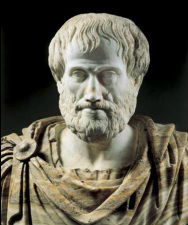NICOMACHEAN ETHICS 1-2
|
|
Pupil of Plato, Aristotle was one of the great polymath's of the ancient world. He wrote on virtually every subject imaginable--physics, metaphysics, rhetoric, biology, logic, and drama, among others. He also wrote one of the most important works in the history of ethics--The Nicomachean Ethics. Aristotle concern in the text initially is focused on the question of human happiness--what is it and how it is attained. It quickly becomes clear that Aristotle believed that only by living a life of virtue could one ultimately become happy. But what is virtue, and it's opposite, vice and how does one go about living a life of true virtue in order to live the happy life. These are the questions that are at the heart of the Nicomachean Ethics--and they are questions that still have tremendous relevance for those of us living today.
|
|
As you read, be sure that you are able to answer the following questions:
Having trouble getting the gist of Aristotle's Nicomachean Ethics? You may want to check out "The Nicomachean Approach to Ethics: The Argument of Ethics 1-2." |
|
Select one of the following question to reflect upon after having gone through all of the above steps:
|
© Michael S. Russo, 2013. All of the content on this webpage is copyright. The materials on this webpage may not be modified, posted or transmitted without the prior consent of the author. Permission is granted to print out copies for educational purposes and for personal use only. No permission is granted for commercial use.



